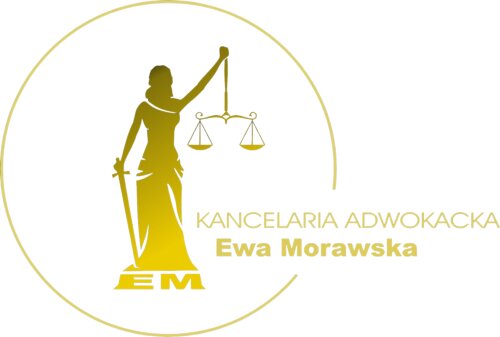Best Restructuring & Insolvency Lawyers in Poland
Share your needs with us, get contacted by law firms.
Free. Takes 2 min.
Or refine your search by selecting a city:
List of the best lawyers in Poland
About Restructuring & Insolvency Law in Poland
Restructuring and insolvency law in Poland governs situations where businesses or individuals are unable to meet their financial obligations. The modern framework encourages debtors and creditors to find solutions either by reorganizing the debtor's affairs or by conducting fair and orderly asset liquidations. The goal is to help viable businesses recover whenever possible, while providing transparent procedures for the distribution of assets when recovery is not possible. Polish law draws from both national legislation and relevant European Union regulations to ensure effective processes and creditor protection.
Why You May Need a Lawyer
Dealing with restructuring or insolvency can be complicated, stressful, and fraught with legal risks. Engaging a lawyer is crucial in several common situations:
- You are a business owner facing mounting debts and are unsure whether restructuring or bankruptcy is the best option.
- Your company is experiencing cash flow problems and needs to negotiate with creditors to prevent insolvency.
- You are a creditor seeking to recover debts from an insolvent company or individual.
- You require guidance on filing for bankruptcy or entering a formal restructuring procedure.
- You suspect possible fraudulent activities or mismanagement by a debtor.
- You need to protect your interests during insolvency proceedings, such as filing claims or contesting the actions of administrators.
- You are interested in acquiring assets from insolvent estates and want to ensure the process is transparent and secure.
Local Laws Overview
Key aspects of Polish restructuring and insolvency laws include:
- Four Main Procedures: Polish law offers several formal procedures: arrangement approval, accelerated arrangement, arrangement procedure, and sanation (remedial) proceedings. Each is tailored to different levels of financial distress.
- Bankruptcy Law: When restructuring is not viable, bankruptcy proceedings may be initiated for both individuals and companies. The Bankruptcy Law outlines the distribution of assets and the primary role of the insolvency trustee.
- Prevention Focus: Restructuring is strongly encouraged prior to bankruptcy to help preserve economic value and save jobs.
- Creditors' Rights: Creditors can participate directly in the proceedings, submit claims, and contest certain actions.
- Management Obligations: Company management has a legal duty to file for bankruptcy within 30 days of becoming insolvent, which can trigger personal liability.
- EU Regulations: Cross-border cases within the EU are subject to specific regulations ensuring recognition and coordination between member states.
- Consumer Bankruptcy: Polish law also allows individuals not running a business to declare personal bankruptcy under certain conditions, offering a second chance to those overwhelmed by debts.
Frequently Asked Questions
What is the difference between restructuring and bankruptcy in Poland?
Restructuring aims to restore the debtor's ability to pay debts, often through negotiated settlements or court-approved plans. Bankruptcy involves liquidating the debtor's assets to satisfy creditors, usually when restructuring is not possible.
How long does the restructuring or insolvency process typically take?
The duration varies depending on the chosen procedure and case complexity. Some arrangement approval processes may be completed in a few months, while full bankruptcy proceedings can last several years.
What are the obligations of a company's management in case of insolvency?
Management must file for bankruptcy or initiate restructuring proceedings within 30 days of becoming insolvent. Failure to do so can lead to personal liability for the company’s debts.
Can individuals file for bankruptcy in Poland?
Yes, individuals who are not entrepreneurs can file for consumer bankruptcy under specific conditions, allowing for debt discharge and a fresh financial start.
What happens to employees if a company undergoes restructuring or bankruptcy?
Employees’ claims, such as unpaid wages, have priority status. In many cases, special government funds may cover some claims if the company is insolvent.
How are creditors involved in the process?
Creditors may file claims, attend creditors' meetings, vote on restructuring plans, and monitor proceedings to protect their interests.
What is sanation, and when is it used?
Sanation is a remedial restructuring process intended for debtors in significant financial distress. It allows for court-supervised management and deep reorganization, potentially including asset sales or renegotiation of contracts.
Do restructuring proceedings protect the debtor from enforcement actions?
Yes, most restructuring and bankruptcy proceedings generally suspend enforcement actions against the debtor, giving them breathing room to negotiate or reorganize.
Can a creditor force a debtor into bankruptcy?
If a debtor is insolvent, creditors have the right to petition the court to initiate bankruptcy, provided certain criteria are met.
What are the costs of starting restructuring or insolvency proceedings?
Costs include court fees, professional advisers, and potential payments to trustees or administrators. Legal consultation is recommended to estimate specific fees for your case.
Additional Resources
If you are dealing with restructuring or insolvency issues in Poland, consider consulting the following organizations and resources:
- Ministry of Justice (Ministerstwo Sprawiedliwości): Oversees restructuring and bankruptcy courts, and offers guidance on legal procedures.
- Central Register of Restructuring and Bankruptcy (KRZ): Official platform providing information on ongoing and closed proceedings.
- National Chamber of Restructuring Advisors (Krajowa Izba Doradców Restrukturyzacyjnych): Professional self-government for licensed restructuring advisors.
- Consumer Advocacy Groups: Offer assistance for individuals considering consumer bankruptcy.
- Qualified Law Firms: Many law firms specialize in restructuring and insolvency, providing both legal advice and representation in court.
Next Steps
If you believe you require legal help with restructuring or insolvency, take the following steps:
- Carefully document your financial situation, including assets, liabilities, contracts, and correspondence with creditors.
- Research and contact a lawyer or restructuring advisor experienced in Polish insolvency law.
- Prepare a list of questions and concerns to discuss at your initial consultation.
- Remain proactive in addressing your debt issues to maximize available options and protect your interests.
- Stay informed by following updates on Polish restructuring and insolvency laws, especially if your situation involves cross-border issues.
Lawzana helps you find the best lawyers and law firms in Poland through a curated and pre-screened list of qualified legal professionals. Our platform offers rankings and detailed profiles of attorneys and law firms, allowing you to compare based on practice areas, including Restructuring & Insolvency, experience, and client feedback.
Each profile includes a description of the firm's areas of practice, client reviews, team members and partners, year of establishment, spoken languages, office locations, contact information, social media presence, and any published articles or resources. Most firms on our platform speak English and are experienced in both local and international legal matters.
Get a quote from top-rated law firms in Poland — quickly, securely, and without unnecessary hassle.
Disclaimer:
The information provided on this page is for general informational purposes only and does not constitute legal advice. While we strive to ensure the accuracy and relevance of the content, legal information may change over time, and interpretations of the law can vary. You should always consult with a qualified legal professional for advice specific to your situation.
We disclaim all liability for actions taken or not taken based on the content of this page. If you believe any information is incorrect or outdated, please contact us, and we will review and update it where appropriate.
Browse restructuring & insolvency law firms by city in Poland
Refine your search by selecting a city.















